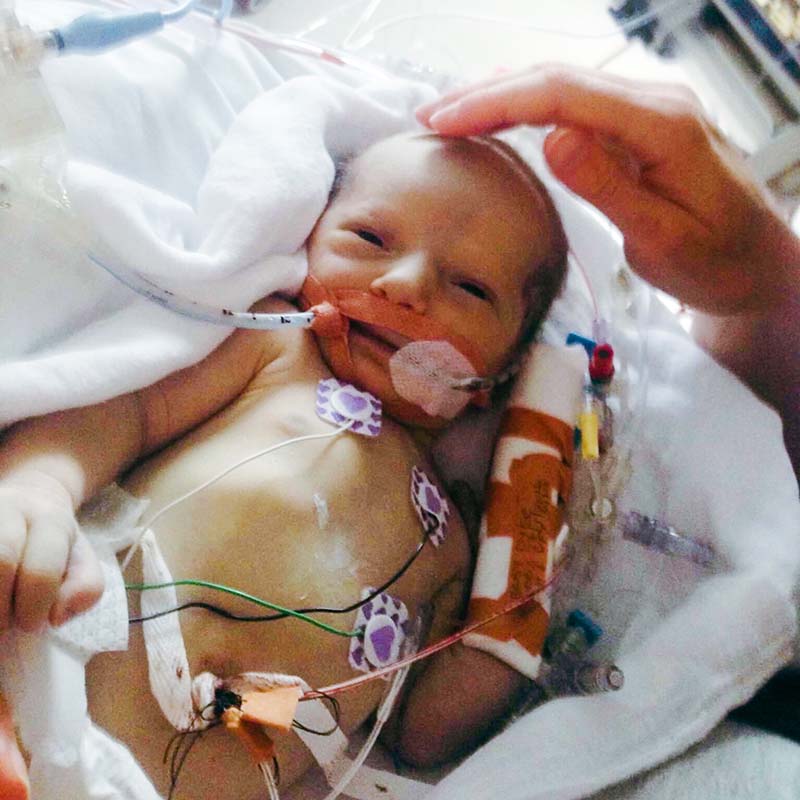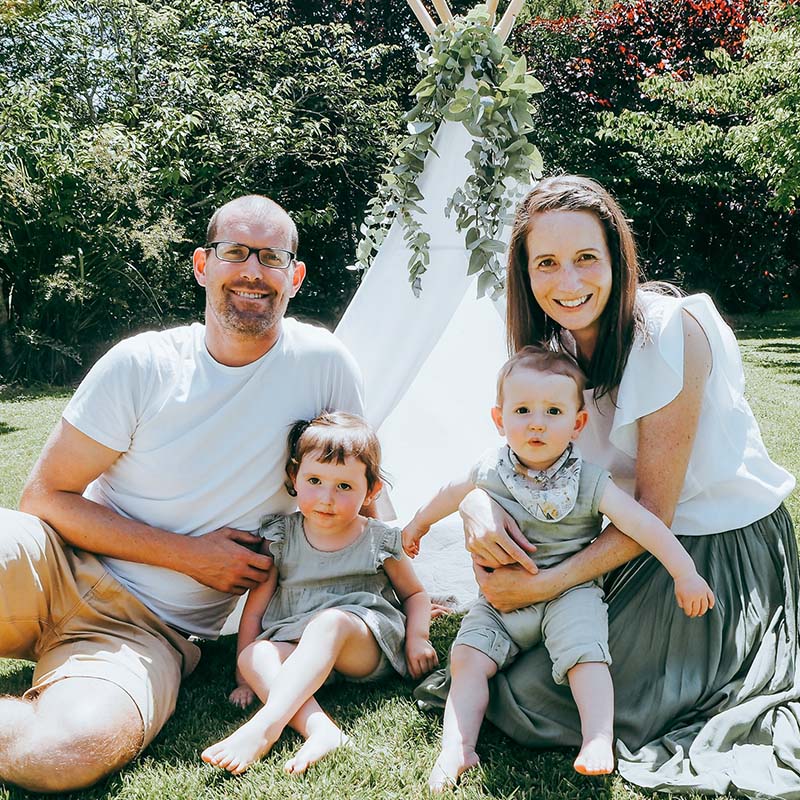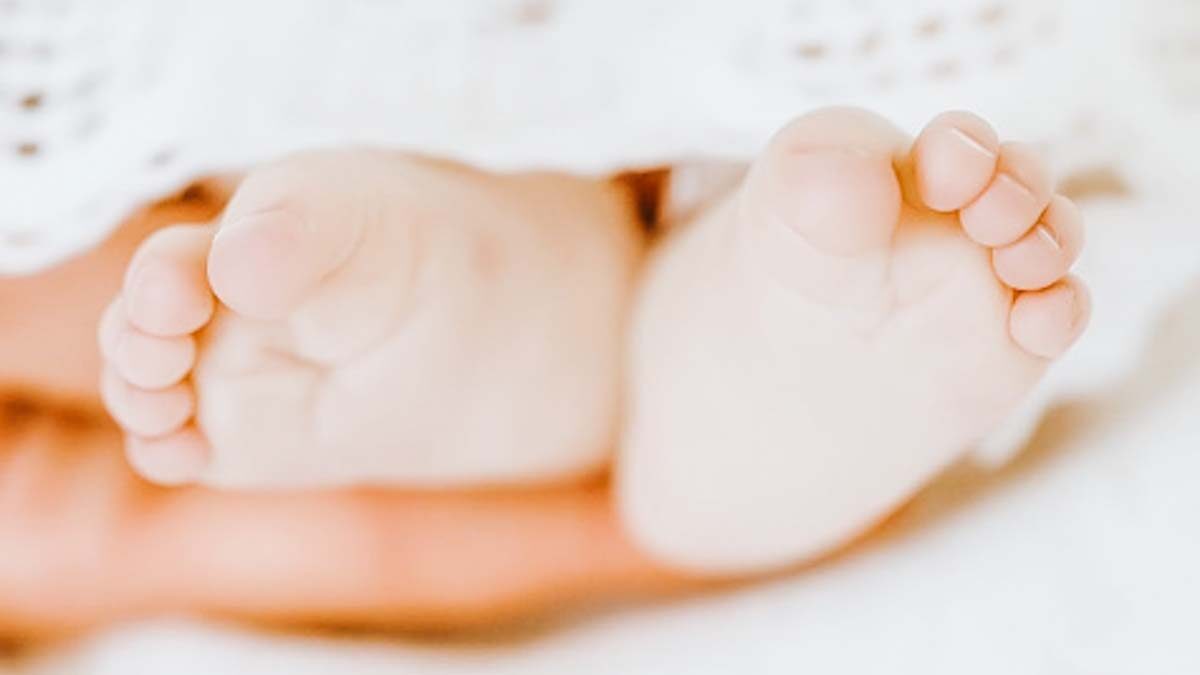[Warning: This story talks about infant death.]
Ever since reading the Bible’s Book of Job as a teenager, I wanted to name my firstborn daughter Jemima.
[Editor’s note: The Bible introduces Job as a wealthy and God-fearing man with a comfortable life and a large family. Satan challenges God, pointing out that Job only loves God because he has lived a blessed life. Satan believes Job would turn away from God if he were rendered penniless and lost his family. The story explores Job’s response when he is subsequently afflicted with suffering after suffering.]
When Job’s fortune is restored, the Bible records he had three daughters who were the most beautiful in all the land and received an inheritance alongside their brothers. One of these daughters was called Jemima. I loved the idea that she was beautiful and treated as an equal to her brothers.
Waiting for my Jemima
As it turned out, I had to wait longer than my teenage dreams anticipated for my Jemima. A PCOS diagnosis in my 20s and marrying late in my 30s had me nervous that having a baby may never happen for me. Amazingly, it didn’t take us long to conceive and when we did, I just knew it would be a girl—my Jemima.
Our 20-week scan confirmed my “girl-baby” hopes but the next day, I was called into the hospital to meet with a doctor. My husband was away for work so I went in alone.
Our baby had a Congenital Diaphragmatic Hernia, a random genetic defect where the diaphragm doesn’t form correctly. This can allow the stomach and liver to grow up to where the heart and lungs are, essentially crushing their growth.
Babies have a 50 per cent chance of survival depending on how big the holes are and how much the lungs can grow prior to birth. It’s a terrible waiting game. At birth the baby is immediately intubated and assisted with breathing until its lungs can be “fluffed” up enough to breath unassisted, before being sent to surgery to put everything back where it should be and close up the holes in the diaphragm.
I left the hospital in shock, crying all the way back to where I’d parked my car a few blocks away. But as I turned the last corner, there in the sky above my car was a beautiful rainbow. It felt like God was trying to get my attention and remind me that He was with me.
80 per cent chance of survival
From that day on, of course, we named our baby Jemima. We prayed over her all the healing verses in the Bible. Isaiah 46:4 was a favourite promise I prayed and clung to:
“Even to your old age and grey hairs
I am He, I am He who will sustain you.
I have made you and I will carry you;
I will sustain you and I will rescue you.”
I constantly sang Geoff Bullock’s “I Am Carried” song to her. As my due date neared, the thought of having to leave Jemima in the Newborn Intensive Care Unit (NICU) without me was hard to prepare my heart for. At that time I came across a beautiful illustration of baby Moses in a basket. It encouraged me to think that if Jochebed had trusted her precious baby to God’s care, I could too.
We were told Jemima had an 80 per cent chance of survival. Her now fortnightly scans were positive. Her lung growth looked great. We decided not to tell anyone except family in order to enjoy the pregnancy without too much extra stress. It wasn’t until a few days before she arrived that we let everyone know on social media and asked for prayer.
When my water broke, we drove to the hospital and met the midwife on duty (my regular midwife couldn’t be there as it was a high-risk birth).
Jemima arrived in the early hours of the morning.
As expected, I only had a quick cuddle before the team of doctors whisked her away to put in the tubes that would help her breath. I was left to rest and my husband went home to shower and sleep. We weren’t able to be with her while they worked on her. It wasn’t till later that evening we were told she was struggling and that we could come and see her.
There was nothing they could do

As soon as she heard my voice her vitals improved. I stayed with her through the night. I sang “I Am Carried” to her, talked to her and prayed for her. She kept opening her eyes to look at me.
Around 3am they thought she was improving so I went back to bed and my husband took over but by the morning she had deteriorated further. We were in complete shock when they told us there was nothing they could do to save her. Her lungs were not responding and the machines were keeping her alive.
The NICU room had three other babies in it so they began to put up privacy screens around us because my baby was dying. Our pastor visited and prayed with us and half-an-hour later another local pastor arrived just as we were being allowed to hold Jemima and her tubes were taken out.
He stayed with us as she died in my arms, 23 hours old.
They performed an autopsy and discovered that what they had previously thought was good lung growth was actually the liver that had come up through the holes in Jemima’s diaphragm and almost completely crushed both lungs.
As we waited for the results my husband’s parents arrived from out of town and a dear friend surprised me with a visit and prayed with us. While my husband popped out to get lunch with his parents, I was left to rest with the sounds of newborn babies crying in the rooms around me.
I was given a box of SANDS (Stillbirth and Neonatal Death Support) resources and flicked through a book of stories from mothers who had lost pregnancies and babies. So many of them were filled with despair. Perhaps it was too soon for me to be reading but I found it quite overwhelming. It also made me a little bit determined. I didn’t want grief to destroy me.
Thankfully I was able to go home that afternoon and we were able to take Jemima with us. I know this is not the way it happened a generation ago and I am so glad times have changed. Having her with us for those few days before the funeral was so precious. I got to shower her in kisses, show her to my family and we even had professional photos taken. I wasn’t sure I would want them but now I am so glad we did.
Later that evening, high school friends arrived from out of town and sat with us. My milk came in and I didn’t know what to do to ease the discomfort. But they loved and stayed with me through all the messiness.
Over the next few days flowers and messages flooded in. Those that especially touched me were church members who shared they too had lost a baby and were ready to chat and support me in any way they could.
It was a blur of funeral preparations, family arriving from overseas and the funeral. Again, I was surprised and touched to have dear friends fly across the country to be with us.
Finding the courage to grieve
A few weeks later when everything had calmed down, my husband had returned to work and it was just my mum and I left at home, my midwife came for a checkup and asked me the best question: Had I had a big cry yet? I admitted I was too scared.
I was afraid if I gave in to the tears I might never stop.
I knew I needed to grieve but I wasn’t sure how to, without falling and remaining in despair. My midwife knew I was a Christian and happened to know a lovely Christian lady from SANDS who had also lost her daughter. She came to visit a week later and gave me her copy of Jerry Sittser’s book, A Grace Disguised. It was just the companion I needed to help me navigate grief as a believer. It helped me have the courage to grieve.
In his book, he refers to the verse in 1 Thessalonians 4:13 which says, “We do not grieve as those who have no hope . . .”, but he adds “we do grieve!” I hadn’t realised how much courage it would take to grieve. I knew I would see Jemima again and that resurrection hope definitely comforted me. But I also needed to do the hard work of grief.
I learned how vital it is to sit with my emotions rather than avoid them or bottle them up. I began to embrace my tears and cry whenever I felt the grief welling up in me. I tried to notice and take to God the feelings of guilt, shame, regret and anger; the what ifs, the whys, the what-nows?
I struggled to be happy for friends and family who were having healthy babies that they got to take home and keep. It was God’s grace that saved me from those feelings of bitterness.
By taking every ugly emotion to Him, God became my biggest comfort. Hardest of all though, was learning to trust Him again, to find the courage to pray again with what now felt like reckless faith asking that God would give me another baby. I also began to pray for friends who were struggling to conceive (by the way God answered a big YES to all those prayers).
It’s easy when life is going relatively well to praise God but so much more of a triumph to worship God in the midst of suffering. Most weeks, I would cry through worship at church. During one such “weeping-instead-of-singing” session a lovely older lady in the pew beside me, who I didn’t know very well, saw my tears and reached over and held my hand and I’ve never forgotten that small but kind gesture as I struggled to sing. I’m so grateful in those moments, that I could stand there and be comforted and encouraged as others in my church family did sing those words of faith, truth and hope.
A story of loss and grace

It’s coming up seven years since we lost Jemima and it’s only recently I’ve realised how, during that awful time, at each heartbreaking turn, God was there! I’d been terrified of the darkness but what I found there was God.
My story of loss was actually His story of grace, a story of how He was with me, reminding me of His love when I was least sure of it, comforting me, healing my broken heart, rescuing me from the depths of bitterness and despair, and giving me courage to not only grieve but to dare to hope again and trust Him for my future.
As my brand new mother’s heart had prayed and sung “I Am Carried” over my dying child, God’s heart had been singing over me: “My child, I will carry you! I will carry you! I will carry you!”
The faces of miscarriage and stillbirth are all around us, and I can guarantee it’s someone you know. Losing a baby is such a personal heartbreak. It can feel too painful, or even embarrassing to share. When I experienced it myself, it was the mothers who had suffered this loss themselves who stood by me as I navigated the foreign landscape of grief. I’m so grateful to so many people for their care and comfort during that awful time.
Wrestling with our deepest pain is hard. But as a Christian, I’ve realised the Bible doesn’t hide stories of suffering and so believe neither should we.
How helpful was this article?
Click on a star to rate it!
4.7 / 5. 3
Be the first to rate this post!
Emma Dyer
Related posts
Subscribe
Receive personalised articles from experts and wellness inspiration weekly!

